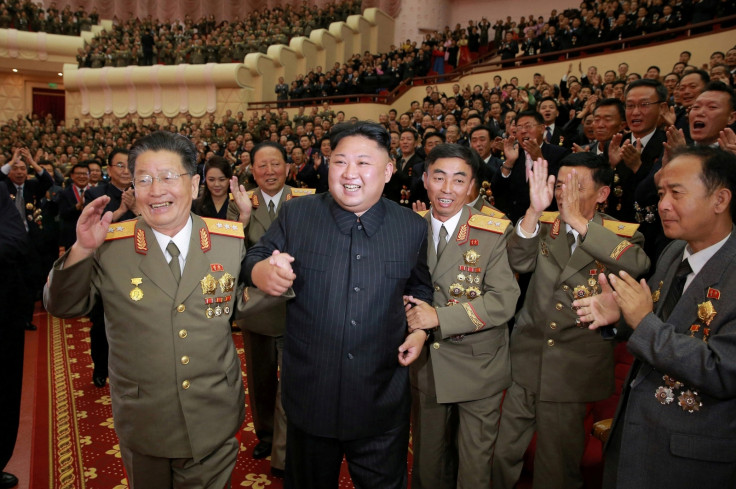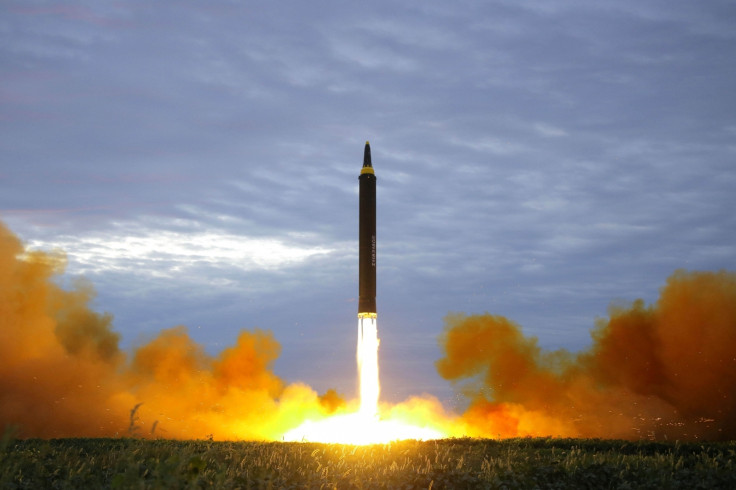If Trump orders attack on North Korea it would boost his support in US says expert
Rusi report says "war is now a real possibility' and would kill hundreds of thousands of people.
Donald Trump may be tempted to use the increased threat posed by Pyongyang as justification to launch an attack on the rogue state which would bolster the president's popularity within the US, a leading think tank report has said.
Research by the respected Royal United Services Institute (RUSI) says that the rapid progress made by Pyongyang could force the hand of Trump who earlier in September had said that Kim Jong-Un was on a "suicide mission".
The report, written by Rusi deputy director-general, Malcolm Chalmers, outlined how Trump would be keenly aware that his decision for a limited air strike against Syria in April 2017 actually boosted his standing within the US and would be in keeping with his 'America first' approach to foreign policy.
"War against North Korea might produce a similar outcome, at least in the short term, rallying public support behind the commander-in-chief and dividing his Democratic opponents," Chalmers' report said.
"He could, no doubt, emphasise that he was prepared to take a tough decision that former President Barack Obama, who was wary of military adventures, would never have taken.
"He might also believe that it would be difficult for the mainstream media to maintain their focus on his past ties with Russia when US forces were fighting and dying in a Korean war," Chalmers said.

The report concluded that "time is not on diplomacy's side" and that "war is now a real possibility", which would cause hundreds of thousands of casualties even if there were no nuclear weapons used.
North Korea could strike first if it believed that the US were moving towards a surprise attack; or a US attack might be triggered by North Korean test missiles hitting the ocean near Guam or California, Chalmers believed.
But the US would need to get the support of South Korea before it made a pre-emptive strike, otherwise it would be seen as a willingness to "sacrifice Seoul to protect New York". War is likely to involve a large-scale US-led air and cyber offensive followed by massive North Korean retaliation against South Korea and US bases.
The research describes that North Korea's leadership is taking its cues from the fates of Colonel Gaddafi in Libya and Saddam Hussein in Iraq, who would not have been attacked had they had a credible nuclear deterrent and so "North Korea is determined to avoid a similar fate by creating a nuclear deterrent of its own."

"While the broader political and economic effects of such a conflict are highly unpredictable, they are likely to be global in nature, dwarfing the effects of the 9/11 attacks and their aftermath in Afghanistan and Iraq," the report said.
At the launch of the paper in London on Thursday (28 September), Sir Simon Gass, who was the Foreign Office political director and helped negotiate a nuclear settlement with Iran, said China would be key to any return to talks and that the tensions "cannot be helped by name-calling and exchanges of ritual insults by the main two parties to the debate".
Also on Thursday, China showed it meant business in implementing the UN sanctions agreed by telling North Korean companies operating in its territory to close down.
Gass said it it is too late to try to stop North Korea's nuclear capability, adding "It is there and it exists and I see very little likelihood that circumstances would arise in which North Korea would be willing to negotiate away its nuclear capability.
"There is a further question about ICBMs but in terms of nuclear capability, the toothpaste is out of the tube," he said.
© Copyright IBTimes 2025. All rights reserved.






















